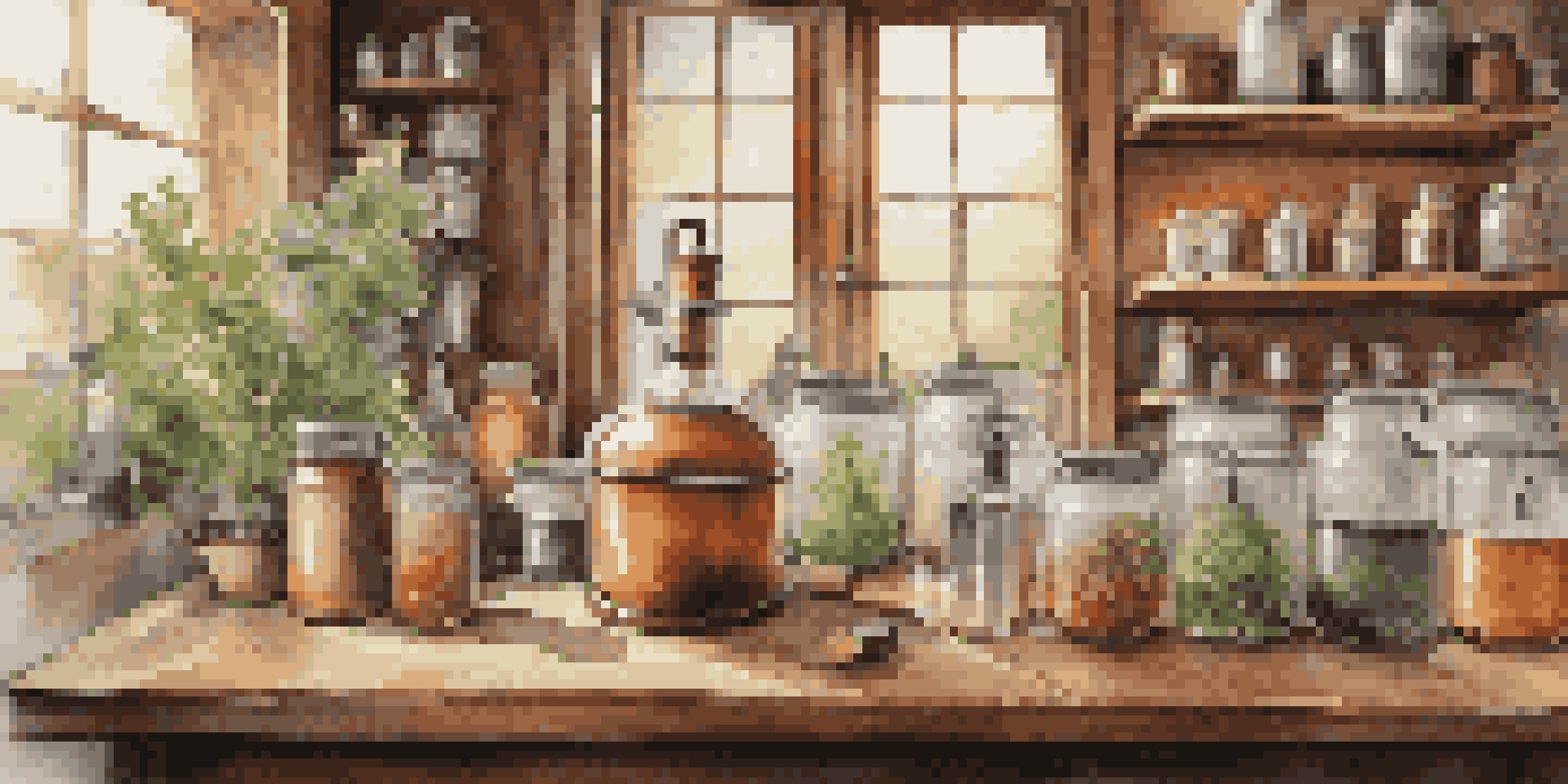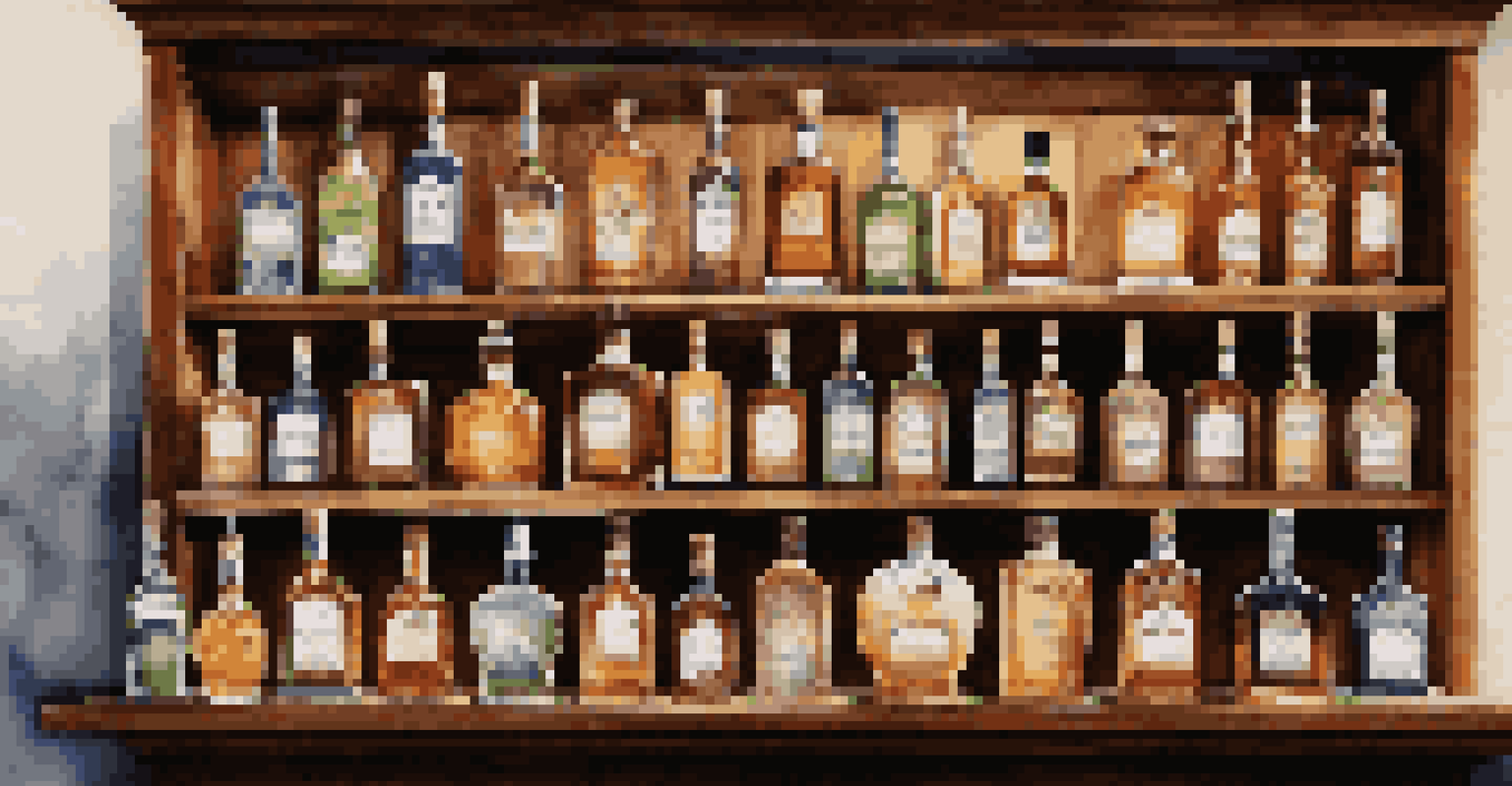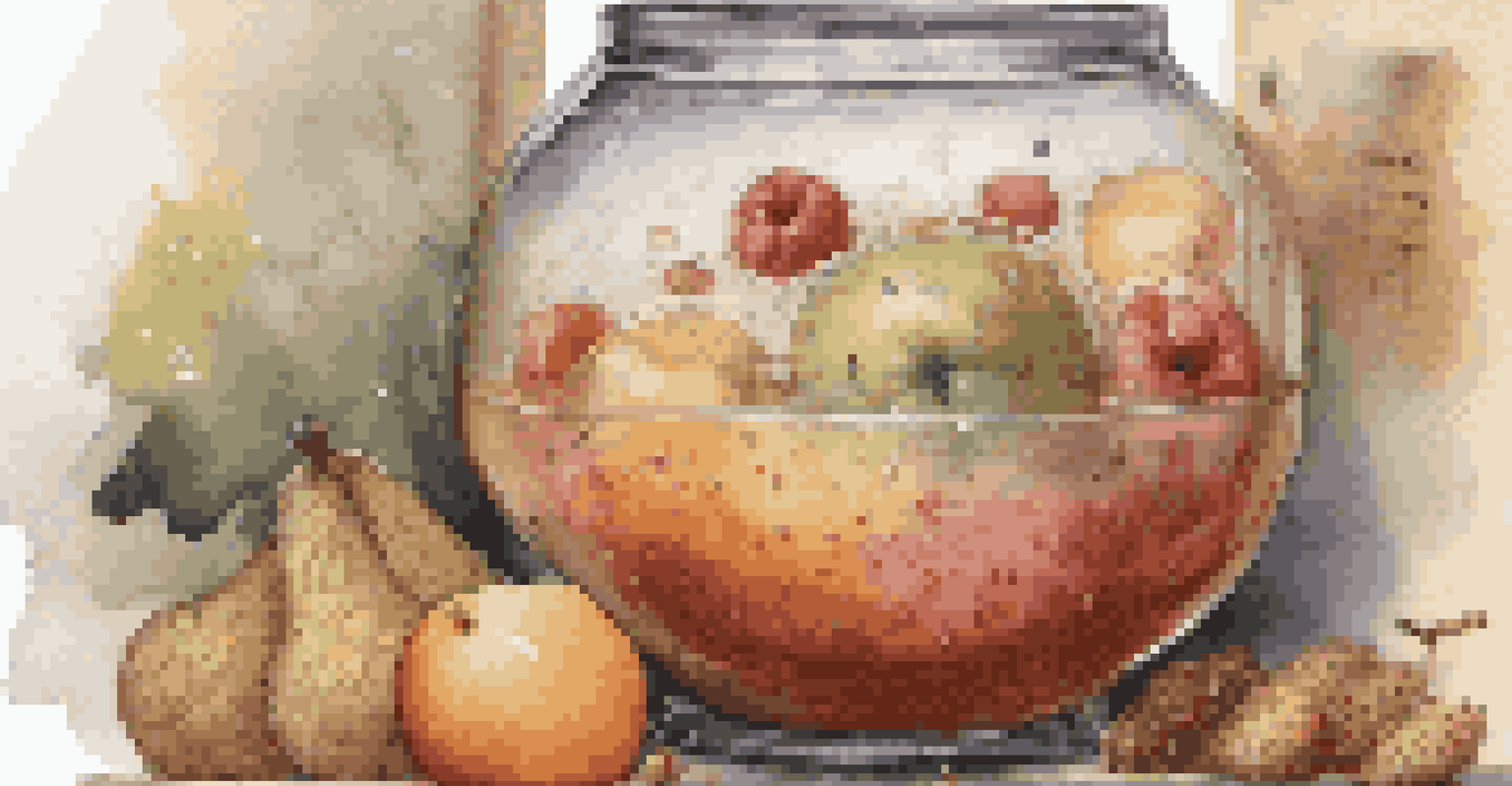Home Distilling Myths: Debunking Common Misconceptions

Myth 1: Home Distilling is Illegal Everywhere
One of the most pervasive myths is that home distilling is illegal in all areas. While it's true that laws vary significantly by region, many places permit home distilling for personal use with proper permits. For instance, in the United States, it's legal in some states to distill alcohol for personal consumption, but licensing is often required.
The only real mistake is the one from which we learn nothing.
To illustrate, imagine baking bread at home; doing so is perfectly legal until you decide to sell it without a permit. Similarly, home distilling can be a fun, legal hobby as long as you adhere to local regulations.
Before you start, it's crucial to check your local laws. Knowledge is power, and understanding your rights can help you enjoy the craft without fear.
Myth 2: All Distilled Spirits are the Same
Another common misconception is that all distilled spirits are created equal. In reality, the flavor, aroma, and character of distilled beverages can vary greatly based on the ingredients, distillation process, and aging techniques. Think of it like cooking; two chefs can use the same recipe but produce completely different dishes based on their techniques and ingredients.

For example, whiskey, vodka, and rum are all distilled spirits, yet each offers a unique taste profile due to their base ingredients—grains, potatoes, or sugarcane, respectively. This diversity is what makes exploring home distilling so exciting and rewarding.
Home Distilling Can Be Legal
Home distilling is legal in many areas with proper permits, contrary to the belief that it is illegal everywhere.
Understanding the nuances between different spirits can elevate your home distilling experience. It allows you to experiment and create personalized flavors that truly reflect your taste.
Myth 3: Home Distilling is Too Complicated
Many people shy away from home distilling because they believe it's overly complicated. While there is a learning curve, it's not as daunting as it seems. Think of it like learning to ride a bike; at first, it may feel challenging, but with practice, it becomes second nature.
Creativity is intelligence having fun.
There are countless resources available today, from beginner guides to online forums, where you can find support and share experiences with fellow enthusiasts. Starting with a simple recipe can help ease you into the process.
Once you grasp the basics, you'll likely find joy in the experimentation involved in creating your unique spirits. Like any craft, the more you practice, the more confident you’ll become.
Myth 4: You Can Distill Anything into Alcohol
Another myth is that any liquid can be distilled into alcohol. While it’s true that a variety of ingredients can be used, not all liquids are suitable for distillation. The key is to understand the fermentation process, which converts sugars into alcohol, before distillation can occur.
For instance, fruits and grains are commonly used because they contain fermentable sugars. Trying to distill something like water won’t yield any alcohol, similar to trying to make juice from a rock—it just won’t work.
Not All Spirits Are the Same
Distilled spirits vary widely in flavor and character based on ingredients and techniques used, making them unique.
Knowing what ingredients work best for distillation can help you create successful batches of spirits. This foundational knowledge can enhance your home distilling adventures.
Myth 5: Home Distilling is Only for Experts
Some believe that only seasoned experts can successfully distill spirits at home. In reality, anyone with a passion for learning and a willingness to experiment can dive into this craft. Just as anyone can learn to play guitar with practice, distilling can be accessible to all.
Many beginners start by following simple recipes and gradually build their skills over time. With the wealth of information available, from books to online tutorials, even novices can create their own spirits.
The key is to embrace the learning process and not be afraid to make mistakes. Each batch you create is an opportunity to improve and refine your techniques.
Myth 6: Distilling is Dangerous and Unsafe
There's a common belief that home distilling is inherently dangerous. While there are risks involved, particularly with improper equipment or lack of knowledge, it can be a safe hobby when approached responsibly. Consider it akin to cooking; using a stove can be dangerous if you don’t understand how to use it properly.
Investing in proper equipment and following safety guidelines can significantly reduce risks. For example, using high-quality stills designed for home use can prevent dangerous situations like explosions or fires.
Quality Spirits Can Be Made at Home
With dedication and attention to detail, home distillers can produce high-quality spirits that rival commercial options.
By prioritizing safety and learning about the distilling process, you can enjoy your hobby without compromising your well-being. Like any craft, responsibility is key.
Myth 7: You Can’t Make Quality Spirits at Home
A prevalent myth suggests that home-distilled spirits lack quality compared to commercially produced options. However, many home distillers produce exceptional spirits that rival those found in stores. It's similar to home cooking; a well-prepared meal can be just as delicious as a restaurant dish.
With careful attention to detail, patience, and a bit of practice, you can create spirits that not only taste great but also reflect your personal style. Many enthusiasts take pride in their craft, focusing on quality ingredients and meticulous techniques.

Plus, the satisfaction of sipping a drink you've made yourself adds an extra layer of enjoyment. Quality is achievable with dedication and passion.
Myth 8: Home Distilling is a Quick Process
Finally, many think that home distilling is a quick and easy way to produce alcohol. In reality, the process requires time and patience, similar to brewing beer or aging wine. It’s not a fast-food endeavor; it’s more like crafting a fine meal that takes hours to prepare.
From fermentation to distillation to aging, each step demands careful attention and time. Rushing these processes can result in poor-quality spirits, much like trying to hurry a loaf of bread that needs time to rise.
Embracing the time and effort involved can lead to rewarding results, and the anticipation of tasting your creation only adds to the experience. Remember, good things come to those who wait!